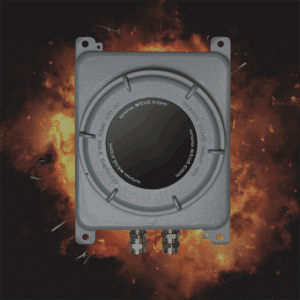Privacy policy
1.0 Data Protection
We attach the utmost importance to protecting your privacy. Any information collected about you, when you decide to provide it to us, is intended to help us better advise you and send you information about the products and services in which you have expressed an interest.
The personal data collected on the site is protected under the French “Informatique et Libertés” law No. 78-17 of January 6, 1978, as amended in 2004, and under Regulation (EU) 2016/679 of the European Parliament and of the Council of April 27, 2016.
This site has taken every precaution and measure to protect your personal information. When users submit sensitive information via this site, their information is protected both online and offline. All of our users’ data remains confined to our premises and those of our trusted third parties listed below. Only personnel who require this data in the course of their duties are authorized to access your personal information. Furthermore, all employees are informed of the current practices to be followed regarding security and personal data.
Unfortunately, no transmission over the Internet can be guaranteed to be 100% secure. Therefore, despite our efforts to protect your personal data, STid cannot ensure or guarantee the security of any data you transmit to or from our online products or services. All such transmissions are at your own risk.
STid’s policy does not apply to matters inherent to the functioning of the Internet, which are beyond STid’s control, and must not be applied in any way contrary to governmental legislation.
2.0 Collection of Personal Data
The personal data collected on this site includes:
- Account creation: When creating the User’s account, their first name, last name, and email address.
- Login: When the User logs into the Site, their first name, last name, connection, usage, and location data, as well as payment information, are recorded.
- Profile: Use of the services provided on the site allows for the completion of a profile, which may include an address and a phone number.
- Cookies: see Article 8.0 Terms of Use and Cookie Policy.
We will also collect your personal data, including but not limited to your name and contact details (including your email address), and other relevant information provided in your Curriculum Vitae (“CV”) via the site’s forms (contact, client space registration, unsolicited application, response to a job offer).
We may also obtain additional personal information about you during our professional relationship. This information may be obtained directly from you or from third parties such as companies to which you may have provided your CV as part of a job application.
3.0 Use of Personal Data
The personal data collected from Users is intended to provide site services, improve them, and maintain a secure environment.
Specifically, uses include:
- access to and use of the site by the User;
- management and optimization of site operation;
- verification, identification, and authentication of data provided by the User;
- provision of User support;
- prevention and detection of fraud, malware, and management of security incidents;
- management of potential disputes with Users;
- sending commercial and promotional information, depending on the User’s preferences.
If you wish to submit a question, comment, or request via email or one of the site’s forms by providing your name, postal address, and email, we guarantee that we will only use this personal information to contact you regarding the site services you are interested in.
We will not disclose your name, email, or postal address to any third party other than the trusted third parties listed below.
We will hold, use, and disclose your personal information only for legitimate business purposes, including:
- to provide our services to you;
- to maintain our professional relationship with you, whether you are a website user, a client, or a candidate;
- to allow you to submit your CV for general applications or specific job openings;
- to match your details with available positions;
- to retain your information and inform you of future job opportunities other than the specific role for which you contacted us;
- to respond to your inquiries;
- to fulfill contractual obligations to our clients;
- to disclose personal information to regulatory or law enforcement bodies if requested or authorized;
- to provide other services by sharing your personal data with trusted third parties, including:
_ SAS OVH – Secure website hosting
Personal data is retained as long as the account is active. The account is deactivated at the User’s request or if no login occurs for over two years.
4.0 Sharing of Personal Data with Third Parties
Personal data may be shared with third-party companies in the following cases:
- when the site uses service providers to provide User support, advertising, and payment services. These providers have limited access to User data for the execution of these services and are contractually obliged to use it in compliance with applicable personal data protection regulations;
- if required by law, the site may transmit data to comply with claims made against it and to comply with administrative and judicial procedures;
- if the site is involved in a merger, acquisition, asset transfer, or bankruptcy proceeding, it may transfer or share all or part of its assets, including personal data. In such cases, Users will be informed before personal data is transferred to a third party.
We will share your personal information with trusted third parties when necessary to provide services requested by you or our clients, such as your name, contact details (including email), and other relevant information you choose to share with us.
We will never disclose, even to trusted third parties, any CVs you share with us. These CVs will only be stored on our own servers located on our premises.
5.0 Security and Confidentiality
The site implements organizational, technical, software, and physical measures in terms of digital security to protect personal data from alteration, destruction, and unauthorized access. However, it should be remembered that the Internet is not a completely secure environment, and the site cannot guarantee the security of information transmission or storage over the Internet.
6.0 Exercise of User Rights
In accordance with the applicable regulations on personal data, Users have the following rights:
- They can update or delete their data by logging into their account and configuring account settings;
- They can delete their account by writing to the following email address: dpo@stid.com;
- They can exercise their right of access to know what personal data is held about them by writing to: dpo@stid.com. In this case, the site may request proof of the User’s identity before implementing this right to verify its accuracy;
- If the personal data held by the site is inaccurate, they can request updates by writing to: dpo@stid.com.
Users can request the deletion of their personal data in accordance with applicable data protection laws by writing to: dpo@stid.com.
7.0 Changes to This Clause
The site reserves the right to make any modifications to this personal data protection clause at any time. If a modification is made, the site commits to publishing the new version on the site. The site will also inform Users of the modification via email at least 15 days before it takes effect. If the User does not agree with the new terms of the personal data protection clause, they may request the deletion of their account.
8.0 Terms of Use and Cookie Policy
Browsing this site is anonymous. In the case of simple browsing without submitting personal data to STid, we will automatically collect and store certain information about your visit using cookies. This information does not personally identify you.
Such data will be used solely for two purposes: site management and, in cases of suspected unauthorized activity, law enforcement and prosecution.
Visitor connection information on STid websites is used to compile general statistics to improve content, ergonomics, and optimize the user experience.
Types of information that may be automatically collected during your visit and stored include:
- the domain name and Internet Protocol (IP) address from which you access our site;
- the type of Internet browser and operating system used to access our site;
- the type of device (computer, tablet, smartphone) used to access our site;
- the date of your visit;
- the geographic location of your connection;
- the pages visited;
- the referring website that directed you to our site;
- the search engine and keyword(s) used to access our site.
You may choose to accept or refuse website cookies via the cookie banner. Regardless of your choice, you may at any time disable or re-enable this site’s cookies. You can accept or refuse API (application programming interface) cookies on a case-by-case basis or refuse them systematically.
Your browser can also be set to notify you of cookies placed on your computer and ask you to accept or reject them.
The APIs used on this site and that may deposit cookies include:
- Navigation cookies, whose purpose is to allow us to optimize site ergonomics and user experience. Visitor navigation data is not exploited on a personal basis. If you disable these cookies in your browser, you may limit the use of certain site functionalities. These cookies cannot be disabled via the cookie banner.
- ReCAPTCHA APIs, which deposit:
- Google Analytics cookies, used to analyze traffic on our information pages to improve content. Visitor navigation data is not exploited on a personal basis. These are aggregated statistics showing the most and least popular pages, preferred paths, activity levels by day of the week and hour of the day, and the main client or server errors.
Google Tag Manager cookies, used to manage “advertising” tags in retargeting campaigns.



